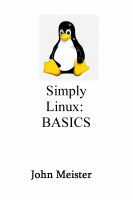--> tree
If 'tree' is not a typo you can use command-not-found to lookup the package that contains it, like this:
cnf tree
------------------------------------------------
--> cnf tree
The program 'tree' can be found in the following package:
* tree [ path: /usr/bin/tree, repository: zypp (repo-oss) ]
Try installing with:
sudo zypper install tree
------------------------------------------------
--> sudo zypper install tree
Retrieving repository 'openSUSE-13.1-Update' metadata ...................................................................................................................................[done]
Building repository 'openSUSE-13.1-Update' cache ........................................................................................................................................[done]
Loading repository data...
Reading installed packages...
Resolving package dependencies...
The following NEW package is going to be installed:
tree
1 new package to install.
Overall download size: 43.7 KiB. After the operation, additional 94.9 KiB will be used.
Continue? [y/n/? shows all options] (y): y
Retrieving package tree-1.6.0-7.1.2.x86_64 (1/1), 43.7 KiB ( 94.9 KiB unpacked)
Retrieving: tree-1.6.0-7.1.2.x86_64.rpm .................................................................................................................................................[done]
(1/1) Installing: tree-1.6.0-7.1.2 ......................................................................................................................................................[done]
------------------------------------------------
--> which tree
/usr/bin/tree
------------------------------------------------
usage: tree [-acdfghilnpqrstuvxACDFQNSUX] [-H baseHREF] [-T title ] [-L level [-R]]
[-P pattern] [-I pattern] [-o filename] [--version] [--help] [--inodes]
[--device] [--noreport] [--nolinks] [--dirsfirst] [--charset charset]
[--filelimit[=]#] [--si] [--timefmt[=]] []
------- Listing options -------
-a All files are listed.
-d List directories only.
-l Follow symbolic links like directories.
-f Print the full path prefix for each file.
-x Stay on current filesystem only.
-L level Descend only level directories deep.
-R Rerun tree when max dir level reached.
-P pattern List only those files that match the pattern given.
-I pattern Do not list files that match the given pattern.
--noreport Turn off file/directory count at end of tree listing.
--charset X Use charset X for terminal/HTML and indentation line output.
--filelimit # Do not descend dirs with more than # files in them.
--timefmt Print and format time according to the format .
-o filename Output to file instead of stdout.
-------- File options ---------
-q Print non-printable characters as '?'.
-N Print non-printable characters as is.
-Q Quote filenames with double quotes.
-p Print the protections for each file.
-u Displays file owner or UID number.
-g Displays file group owner or GID number.
-s Print the size in bytes of each file.
-h Print the size in a more human readable way.
--si Like -h, but use in SI units (powers of 1000).
-D Print the date of last modification or (-c) status change.
-F Appends '/', '=', '*', '@', '|' or '>' as per ls -F.
--inodes Print inode number of each file.
--device Print device ID number to which each file belongs.
------- Sorting options -------
-v Sort files alphanumerically by version.
-r Sort files in reverse alphanumeric order.
-t Sort files by last modification time.
-c Sort files by last status change time.
-U Leave files unsorted.
--dirsfirst List directories before files (-U disables).
------- Graphics options ------
-i Don't print indentation lines.
-A Print ANSI lines graphic indentation lines.
-S Print with ASCII graphics indentation lines.
-n Turn colorization off always (-C overrides).
-C Turn colorization on always.
------- XML/HTML options -------
-X Prints out an XML representation of the tree.
-H baseHREF Prints out HTML format with baseHREF as top directory.
-T string Replace the default HTML title and H1 header with string.
--nolinks Turn off hyperlinks in HTML output.
---- Miscellaneous options ----
--version Print version and exit.
--help Print usage and this help message and exit.
------------------------------------------------
JohnMeister.com
Today's Date:
|










